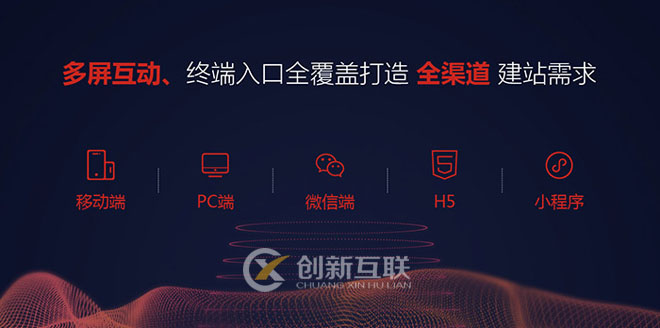破解Redis直接取出Map中的值(redis直接查map值)
破解Redis:直接取出Map中的值

成都创新互联服务项目包括高青网站建设、高青网站制作、高青网页制作以及高青网络营销策划等。多年来,我们专注于互联网行业,利用自身积累的技术优势、行业经验、深度合作伙伴关系等,向广大中小型企业、政府机构等提供互联网行业的解决方案,高青网站推广取得了明显的社会效益与经济效益。目前,我们服务的客户以成都为中心已经辐射到高青省份的部分城市,未来相信会继续扩大服务区域并继续获得客户的支持与信任!
Redis是一种广泛使用的键值对数据库,可以轻松存储和查询大量数据。其中,Map类型是Redis中最常用的数据结构之一,它可以存储一个键对应多个值的数据项,类似于Java中的HashMap。
对于许多开发人员来说,从Redis中提取Map值可能并不容易。这是因为Redis在存储Map类型值时,会将其序列化并以二进制格式存储。因此,要从Redis中读取Map值,需要先使用适当的反序列化程序将其转换为可读格式。
但是,有时候我们可能需要直接获取Redis中Map类型的某个值,而不是整个Map。这时,我们可以运用一些技巧,通过解析Redis中存储的二进制数据来直接获取所需的值,而不必反序列化整个Map。
下面是一个示例程序,演示了如何使用Java来破解Redis中存储的Map,取出其中某个值:
“`java
import java.nio.byteBuffer;
import java.nio.charset.Charset;
import java.util.Map;
import redis.clients.jedis.Jedis;
import redis.clients.util.SafeEncoder;
public class RedisCrackMap {
public static void mn(String[] args) {
// 连接到本地Redis服务
Jedis jedis = new Jedis(“localhost”);
//获取Map类型的键值对
byte[] mapData = jedis.get(SafeEncoder.encode(“myMapKey”));
//解析二进制数据,获取指定键的值
byte[] searchKey = SafeEncoder.encode(“key1”); //要查找的键
int offset = 2; //偏移量(序列化时加入的额外字节数)
int index = findKeyOffset(mapData, searchKey, offset);
Map.Entry entry = decodeEntry(mapData, index);
String result = SafeEncoder.encode(entry.getValue()); //获取相应的值
System.out.println(“The value of key1 in myMapKey is: ” + result);
}
// 根据指定键在二进制数据中查找对应值的偏移量
public static int findKeyOffset(byte[] data, byte[] searchKey, int offset) {
byte[] keylengthBytes = new byte[4];
int index = offset; //从指定偏移量开始查找
while (index
//读取当前键的长度
System.arraycopy(data, index, keyLengthBytes, 0, 4);
int keyLen = ByteBuffer.wrap(keyLengthBytes).getInt();
index += 4;
//读取当前键的值
byte[] keyBytes = new byte[keyLen];
System.arraycopy(data, index, keyBytes, 0, keyLen);
index += keyLen;
byte[] valueBytes = new byte[EntrySerializer.VALUE_LENGTH_prefix_size + EntrySerializer.getValueLength(data, index)];
System.arraycopy(data, index, valueBytes, 0, valueBytes.length);
index += valueBytes.length;
//比较当前键与目标键是否相同
if (safeArrayEquals(searchKey, keyBytes)) {
return index – valueBytes.length – keyLen – EntrySerializer.KEY_LENGTH_PREFIX_SIZE; //返回当前键值对的偏移量
}
}
return -1; //未找到指定键
}
private static boolean safeArrayEquals(byte[] a1, byte[] a2) {
if (a1 == null || a2 == null || a1.length != a2.length)
return false;
for (int i = 0; i
if (a1[i] != a2[i])
return false;
}
return true;
}
// 解码一个键值对
private static Map.Entry decodeEntry(byte[] src, int start) {
int length = EntrySerializer.getKeyLength(src, start);
byte[] key = new byte[length];
System.arraycopy(src, start + EntrySerializer.KEY_LENGTH_PREFIX_SIZE, key, 0, length);
int valueLength = EntrySerializer.getValueLength(src, start + EntrySerializer.KEY_LENGTH_PREFIX_SIZE + length);
byte[] value = new byte[valueLength];
System.arraycopy(src, start + EntrySerializer.KEY_LENGTH_PREFIX_SIZE + length + EntrySerializer.VALUE_LENGTH_PREFIX_SIZE, value, 0, valueLength);
return new Entry(key, value);
}
private static class Entry implements Map.Entry {
private final byte[] key;
private final byte[] value;
public Entry(byte[] k, byte[] v) {
key = k;
value = v;
}
@Override
public byte[] getKey() {
return key;
}
@Override
public byte[] getValue() {
return value;
}
@Override
public byte[] setValue(byte[] value) {
throw new UnsupportedOperationException(“This operation is not supported for Map entries”);
}
}
private static class EntrySerializer {
static final byte[] ZERO_VALUE_LENGTH = new byte[4];
static final int KEY_LENGTH_PREFIX_SIZE = 4;
static final int VALUE_LENGTH_PREFIX_SIZE = 4;
static final Charset UTF8 = Charset.forName(“UTF-8”);
static int getKeyLength(byte[] data, int offset) {
int length = ByteBuffer.wrap(data, offset, KEY_LENGTH_PREFIX_SIZE).getInt();
return length;
}
static int getValueLength(byte[] data, int offset) {
int length = ByteBuffer.wrap(data, offset, VALUE_LENGTH_PREFIX_SIZE).getInt();
return length;
}
static byte[] encode(byte[] key, byte[] value) {
byte[] keyLengthBytes = ByteBuffer.allocate(KEY_LENGTH_PREFIX_SIZE).putInt(key.length).array();
byte[] valueLengthBytes = ByteBuffer.allocate(VALUE_LENGTH_PREFIX_SIZE).putInt(value.length).array();
byte[] result = new byte[KEY_LENGTH_PREFIX_SIZE + key.length + VALUE_LENGTH_PREFIX_SIZE + value.length];
System.arraycopy(keyLengthBytes, 0, result, 0, keyLengthBytes.length);
System.arraycopy(key, 0, result, KEY_LENGTH_PREFIX_SIZE, key.length);
System.arraycopy(valueLengthBytes, 0, result, KEY_LENGTH_PREFIX_SIZE + key.length, valueLengthBytes.length);
System.arraycopy(value, 0, result, KEY_LENGTH_PREFIX_SIZE + key.length + VALUE_LENGTH_PREFIX_SIZE, value.length);
return result;
}
}
}
该程序通过解析二进制数据,查找指定键的偏移量,然后再解析该键值对,获取键所对应的值。实际上,它从Redis中取出了Map中的值,而无需反序列化整个Map。使用此方法,我们可以有效地提取Redis中存储的大量二进制数据,并获取所需的值,而不必使用过程繁琐的反序列化方法。
Redis是一个功能强大的数据库,为许多项目提供了快速高效的数据存储和访问功能。通过解析Redis中存储的二进制数据,可以轻松破解Redis中的Map类型值,并直接获取所需的值,使开发人员能够更轻松快速地访问Redis中的数据。
香港服务器选创新互联,香港虚拟主机被称为香港虚拟空间/香港网站空间,或者简称香港主机/香港空间。香港虚拟主机特点是免备案空间开通就用, 创新互联香港主机精选cn2+bgp线路访问快、稳定!
当前文章:破解Redis直接取出Map中的值(redis直接查map值)
分享链接:http://www.mswzjz.cn/qtweb/news11/26461.html
攀枝花网站建设、攀枝花网站运维推广公司-贝锐智能,是专注品牌与效果的网络营销公司;服务项目有等
声明:本网站发布的内容(图片、视频和文字)以用户投稿、用户转载内容为主,如果涉及侵权请尽快告知,我们将会在第一时间删除。文章观点不代表本网站立场,如需处理请联系客服。电话:028-86922220;邮箱:631063699@qq.com。内容未经允许不得转载,或转载时需注明来源: 贝锐智能
- sd-wan是互联网专线吗(sdwan跨境专线怎么搭建?)
- 搜索引擎推广怎么做?
- vps虚拟主机稳定性和速度怎么测试
- 解决Redis连接暴增的新方案(redis连接暴增问题)
- bilibili为什么有些弹幕
- Bash变量递增或递减操作
- 没有鼠标怎么右键
- app服务器怎么验证?(app怎么测试服务器是否正常)
- Linux查看物理内存的方法(linux获取物理内存)
- 韩国高速vps租用怎么测试
- 三种使用 Redis 队列的方式(redis队列三种方式)
- ai和攻防有什么区别
- 怎么画云彩?(怎么画云彩简单又漂亮)
- 解决Linux平台硬盘驱动问题(linux硬盘驱动)
- 探索ECCLinux:保障您数据安全的利器(ecclinux)